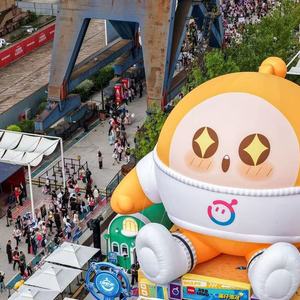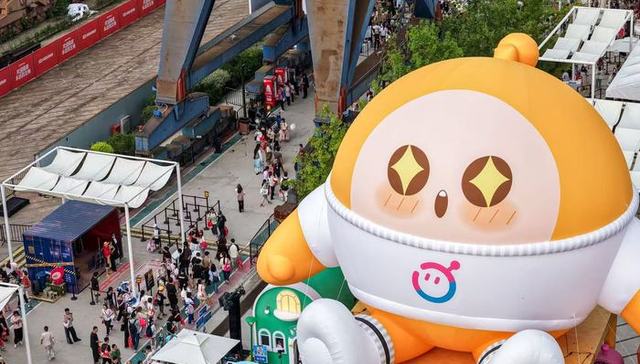by FANG Zhuoran
When visitors stepped out of Fuxing Island Station earlier this month, they were greeted by a massive sign declaring "Welcome Home, the Forever Protagonist." The island’s 80,000 square metres of warehouses, parks and riverside shipyards had been remade into immersive scenes inspired by hit games and anime franchises, from Pokémon to Genshin Impact.
The occasion was RED LAND, an "open-world adventure island" event hosted by lifestyle platform Xiaohongshu from August 8 to 10. The event transformed industrial relics such as cranes and slipways into backdrops for more than 50 top international IPs, connecting the island with nearby commercial hubs in a cross-district experience.
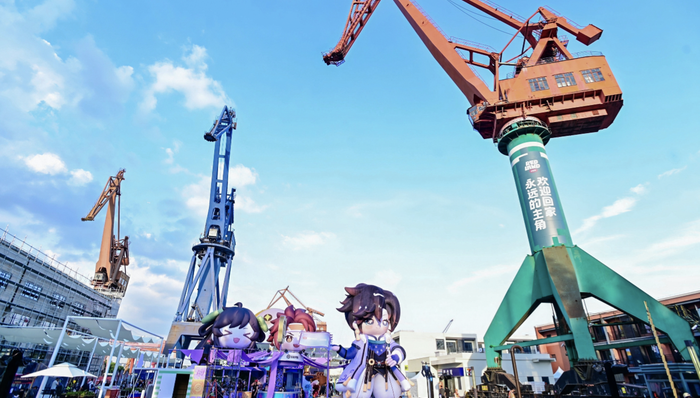
The term "Ita Island" borrows from Japan's ita culture, where fans cover personal items with dense, eye-catching decorations of favourite characters. Xiaohongshu said the idea began as a "wild proposal" three months ago — to rent an entire island for gamers and anime fans. Fuxing Island, the only inland island in Shanghai's Huangpu River and long left as "strategic blank space," proved the perfect stage.
"Once we set foot here, we knew it was right," said Bai Ban, the platform's head of community marketing. The island's mix of nature and industrial heritage, he added, "fits perfectly with giant mecha and other game scenes."
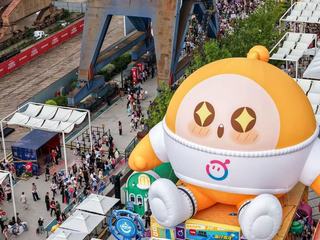
RED LAND quickly became one of the hottest tickets of the summer. Nearly 300,000 people joined online quizzes for free passes, while public ticket sales sold out in seconds. Fans arrived in decorated itasha cars shuttling between Fuxing Island, Wujiaochang commercial hub and other linked venues.
For many, it was their first time on the island. "It used to be just a cold name on the map," said 20-year-old attendee Xin Xin. "Now it feels like a hidden treasure."
Yangpu District authorities linked RED LAND with the city's wider anime and gaming economy. Wujiaochang hosted anime-themed pop-ups, cafés and merchandise events tied to popular IPs, alongside 5 million yuan in consumption vouchers for food, retail and accommodation. Some large installations will be reused in the district after the event.
Once home to Hudong Shipyard, Fuxing Island is earmarked for redevelopment as a "digital intelligence island," "design and art island" and "people's city island." Around 300,000 square metres of industrial buildings and yards are available for conversion into a year-round mix of cultural, commercial and sports activities.
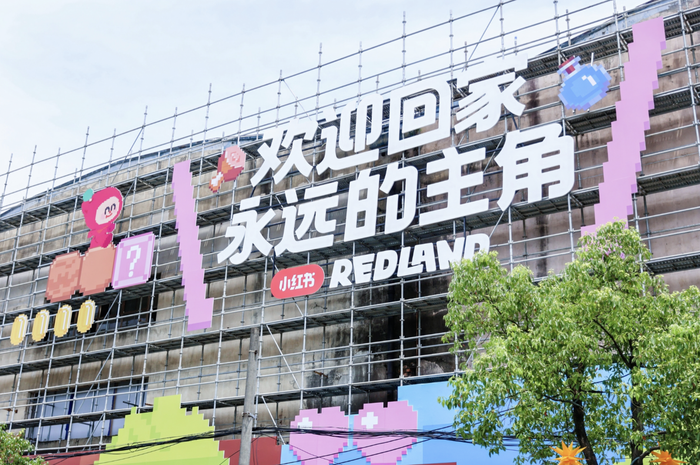
Since May, the island has hosted the World Artificial Intelligence Conference's Quantum City sub-forum, a global design contest and auditions for iQIYI's The Rap of China.
The rise of Fuxing Island reflects a broader push across Shanghai to revitalise ageing districts through youth-oriented culture. This summer's inaugural "Shanghai Summer" International Animation Month has filled the city with anime pop-ups, themed festivals and the 22nd ChinaJoy expo, which drew over 410,000 visitors and generated an estimated 661 million yuan in spending.
For city planners, events like RED LAND are more than entertainment. By pairing resource renewal with cultural identity and youth demand, they aim to combine Shanghai's historical depth with new vitality — and, perhaps, offer other cities an answer to "how to stay forever young."
